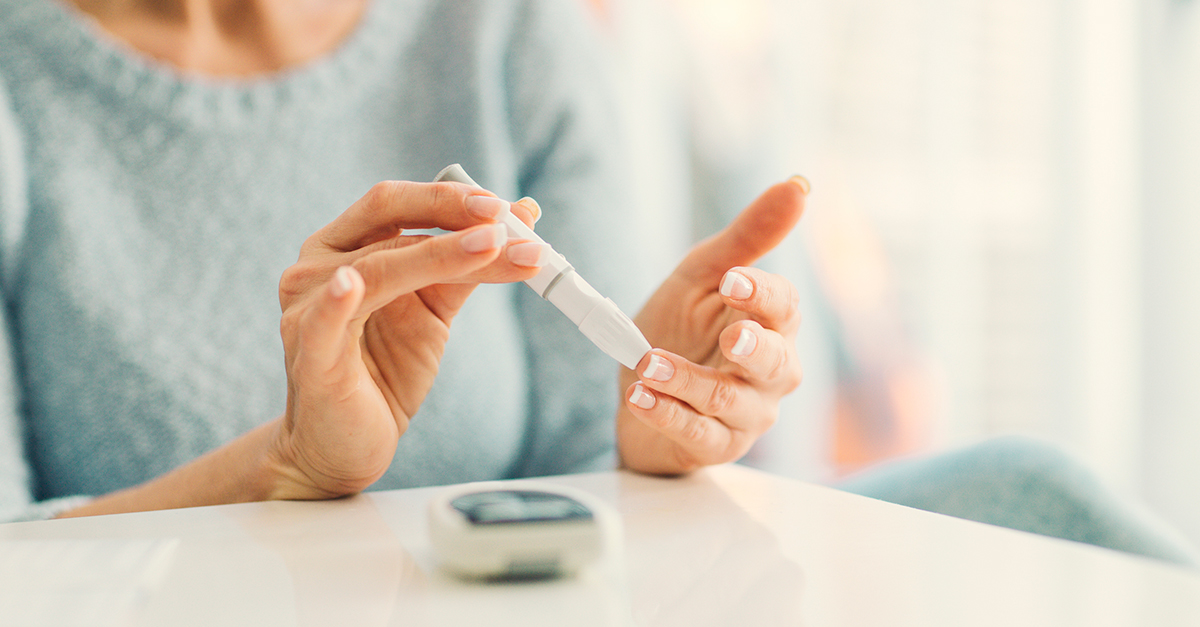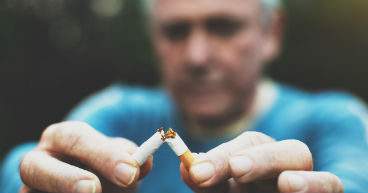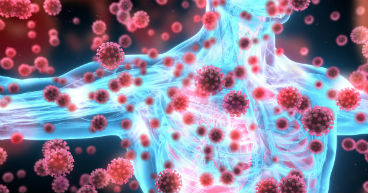
Cancer and diabetesmay be frustrating enough to deal with on their own. Battling both diseases at the same time may add even more stress to your life. But there are resources and tools that can help. During theCOVID-19 pandemic, it’s even more important for patients with both conditions to find ways to manage them in order to reduce their risk of infection and/or severe side effects if they get infected.
What is diabetes?
Diabetes occurs when the body does not produce or properly use insulin, a hormone secreted by the pancreas. Insulin is needed to convert sugar, starches and other carbohydrates into energy. Much of the food you eat is broken down into glucose (sugar), the body’s main source of fuel. After digestion, glucose passes into the bloodstream and, with the help of insulin, moves into the body’s cells, where it provides fuel.
If the pancreas produces little or no insulin, or if the body’s cells do not respond appropriately to the insulin that is produced, glucose accumulates in the blood and the body’s cells lose their main source of fuel. Also, when there’s too much sugar in the blood for long periods of time, other cells become damaged.
The cancer-diabetes relationship
Between 8 and 18 percent of people living with cancer also have diabetes. While many patients know they’re diabetic when they’rediagnosed with cancer, others may only discover the condition after a cancer diagnosis or during treatment.
There are two main types of diabetes:
- Type 1 diabetes, formerly known as “juvenile-onset” diabetes or insulin dependence diabetes mellitus (IDDM), occurs when the pancreas produces little or no insulin. Type 1 diabetes may occur at any age, but it typically develops in people under the age of 30 (most commonly children). It accounts for about one out of 10 diabetes cases and is primarily treated with daily insulin injections. Type 1 diabetics with cancer most often havecervicalandstomachcancers.
- Type 2 diabetes, sometimes called “adult-onset” diabetes or non-insulin dependent diabetes mellitus (NIDDM), is more common and occurs when the insulin produced by the pancreas does not work effectively. Type 2 diabetes is typically found in patients over 30 years of age who are overweight. The condition accounts for about nine out of 10 diabetes cases and may be managed with healthy eating, regular exercise, oral medications and/or insulin when necessary. Type 2 diabetes often occurs withbreast,endometrial,pancreatic,liver,kidney, andcoloncancers.
Some pregnant women may also get diabetes—a condition called gestational diabetes.
Patients with all three types of diabetes may be at a higher risk of severe symptoms if they get infected with the COVID-19 virus, according to the U.S. Centers for Disease Control and Prevention (CDC). The agency recommends diabetic patients have at least a two-week supply of their medication on hand, test their blood sugar every four hours and follow guidelines formanaging days when they’re sick.
“It has been clearly recognized that certain co-morbidities, like diabetes, increase the risk for severesymptoms associated with COVID-19 infections,” saysMaurie Markman, MD, President of Medicine & Science atbeplay体育iosapp下载®(CTCA). “Individuals with diabetes who are exposed to a COVID-19 patient, and particularly if they experience symptoms consistent with this viral infection, should contact their physician.”
Tips for managing diabetes during cancer treatment
Properly managing diabetes during cancer treatment is critical.beplay13官网 and365beplay体育手机 may cause metabolic changes that trigger or aggravate symptoms of diabetes. Also, high blood sugar levels caused by diabetes may weaken the immune system, which needs to be strong to fight cancer. Likewise, diabetes may delay cancer treatment or increase the risk of infection during treatment.
Here are 10 tips for managing your diabetes:
教育yourself.Try to learn as much as possible about the disease and how it may impact your cancer treatment. Developing for managing the disease will empower you to take better care of yourself and prevent or reduce diabetes complications.
Make a plan.Discuss your goals for diabetes management with your health care team, including your doctors and dietitians. Taking an active role in your diabetes care will help you better manage the disease.
Keep a balance.To maintain a healthy glucose level and help fight fatigue during cancer treatment, it is important to stick to a daily routine or schedule. Try to properly balance your diet, exercise, glucose levels and medication. Stay well hydrated, and don't skip meals. To prepare for times when you can't have a regular meal, carry healthy snacks with you.
Monitor your blood sugar.Some cancer treatments may cause blood glucose levels to rise. Keeping your blood sugars within your target range may help you prevent infection, nausea, fatigue and other challenges.
Monitor your blood pressure.Diabetes and high blood pressure may damage your blood vessels. High blood pressure may also impair your immune system, limiting your ability to fight off viruses that cause infection. To help keep blood pressure within the normal range, practice healthy habits like a eating balanced diet and getting regular exercise.
Eat smart.To regulate your blood sugar levels, carefully manage what you eat, how much and when. This may be a challenge during cancer treatment if you feel nauseous or have difficulty keeping foods down. Maintain a healthy balance of carbohydrates, fat and protein. Choose whole fruits and vegetables, whole grains and beans, and reduce the amount of white, refined products, simple sugars, cakes and candy. A registered dietitian may help you develop a healthy eating plan tailored to you and your needs.
Stay physically active.Regular exercise may help increase the efficiency of cells to absorb glucose and process it. Exercise may also help increase muscle, thereby reducing insulin resistance. It may also help to elevate your mood and relax you. A rehabilitation therapist may help you develop an appropriate exercise program for you to do at home.
Avoid unhealthy habits.If you have cancer and diabetes, the risks of smoking are even higher.Smoking further impairs your immune system, making you more susceptible to colds and respiratory infections. You should also avoid excessive alcohol consumption, which may dehydrate you and further weaken your immune system.
Manage your stress.無論你如何應對,癌症和diabetes may cause added stress. Stress may increase your body's production of the hormones that block the effect of insulin, causing your blood sugar to rise. Try different ways to reduce stress, such as relaxation techniques, distraction and yoga.
Talk about your feelings with others.Share your concerns with family and friends, as well as with others who are in similar situations. Consider joining a support group for people who are managing a dual diagnosis. Expressing yourself may help you feel less alone and improve your overall quality of life.
Learn why GI symptoms from COVID-19 are an added concern for cancer patients.





